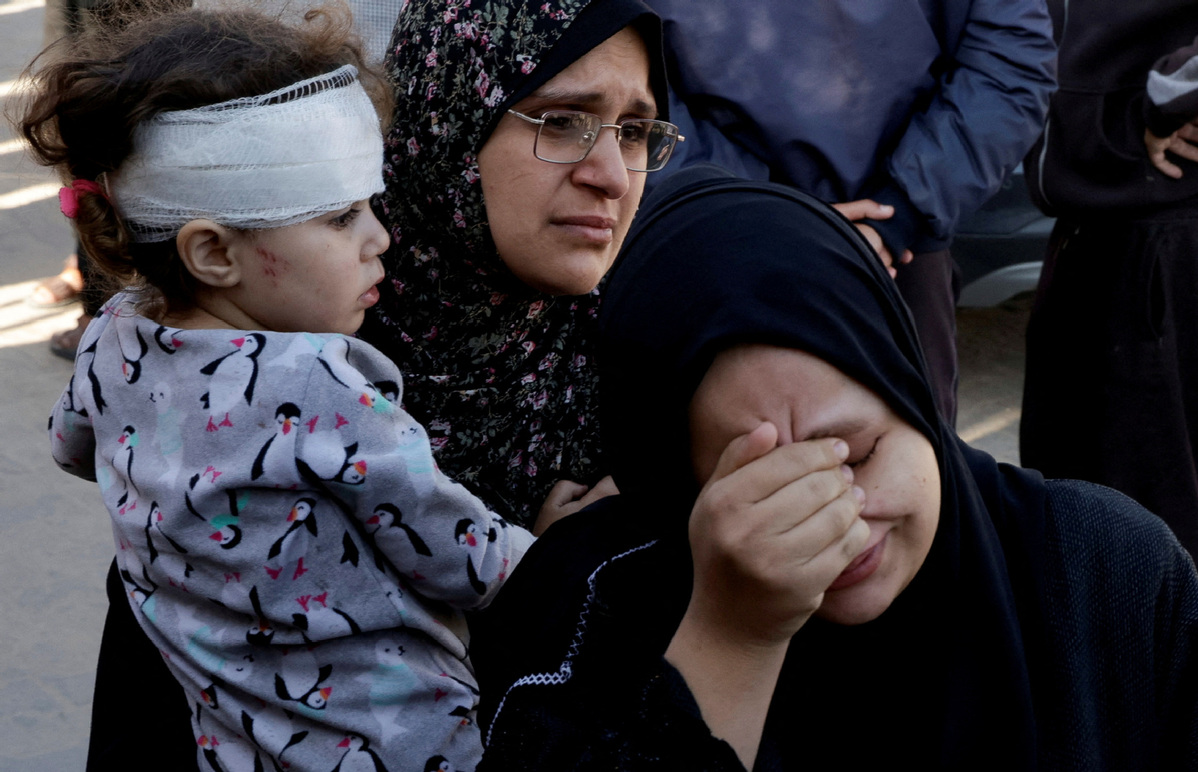Kidney patients in Gaza struggle to get treatment as health system gutted by war


GAZA - On a rusty hospital bed in Gaza City, Issa Abu Laban was enduring a shortened dialysis session with outdated machines and dwindling medication.
"My body can't clear its toxins," the 53-year-old said. "I feel death surrounding me."
Abu Laban is one of hundreds of kidney patients in Gaza now facing life-threatening complications. Gaza's fragile health system -- already weakened by years of blockade -- has been pushed to the brink since the conflict erupted on Oct 7, 2023. Hospitals are overwhelmed, with staff being exhausted and essential supplies critically scarce.
The crisis has deepened after humanitarian aid and medicine were prevented from entering the enclave on March 2, when the first phase of a ceasefire expired. Two weeks later, on March 18, renewed Israeli military operations triggered fresh mass displacement, putting further strain on the few hospitals still functioning.
"Because of the Israeli blockade and war, none of the food, water, or other humanitarian aid is entering Gaza," Abu Mohammed Ajour, a 62-year-old kidney patient, told Xinhua.
Now living in a temporary shelter, Ajour often goes without clean drinking water.
"Bottled water is so expensive. I cannot afford it," he said. "But without clean water, my condition gets worse. It is not just the war that is killing us. It is thirst, poverty, and neglect," he said.
Children are especially vulnerable in this health crisis.
Seven-year-old Yousef al-Rantisi, pale and visibly exhausted, clutched a soft toy as he was undergoing dialysis. "I feel weak and cold. I just want the pain to stop," he whispered.
Al-Rantisi's family, displaced from northern Gaza, now lives in a shelter in the Sheikh Radwan neighborhood north of Gaza City. With limited income, accessing hospital care is a weekly ordeal.
"Transportation costs $30, which we couldn't afford," his father, Mahmoud al-Rantisi, told Xinhua. "Sometimes I carry him in a wheelchair and walk for two hours to get here. But there are days when we cannot make it, and his condition worsens."
"For all renal patients, survival has become a daily calculation between food, water, and medicine, something always has to be sacrificed. And with each passing day, the choices grow more impossible," Ghazi al-Yazji, a local nephrologist at Al-Shifa Hospital, told Xinhua.
Munir Al-Bursh, director general of the health authorities in Gaza, warned that the lives of dozens of patients are under threat due to a severe lack of dialysis machines and critical medical supplies.
"The health disaster facing kidney patients is worsening daily," he said. "The continued blockade and ban on the entry of life-saving medications have severely impacted both regular and chronic kidney patients."
Abdullah al-Qishawi, head of the Department of Nephrology at Al-Shifa Hospital, said about 1,100 patients with kidney disease received dialysis treatment before the conflict. Out of them, around 416 have died since the outbreak of the war, mainly due to a lack of proper treatment.

































